Keratoplasty /Cornea Transplant Surgery in Panchkula
Affordable Corneal treatment with PK, DALK, DSEK & DMEK by the top cornea surgeons
![]() Affordable
Affordable
![]() Same Day Discharge
Same Day Discharge
![]() PK, DALK, DSEK & DMEK Available
PK, DALK, DSEK & DMEK Available
![]() Free Consultation
Free Consultation
Cornea Transplant / Keratoplasty In Panchkula
Keratoplasty, also known as Cornea Transplant surgery, is a procedure that restores the function of a person’s cornea. This corrective surgery can be performed on both adults and children. A keratoplasty can be done as an outpatient procedure in Panchkula, or it may require hospitalization.
The cornea is the clear outer layer of the eye. It helps to focus light entering the eye and protects the inside of the eye from harmful rays and debris. Keratoplasty involves removing damaged or diseased portions of the cornea and replacing them with healthy tissue from elsewhere in the body.
Most people report excellent results following a keratoplasty, with improved vision and clarity that lasts for many years. If you are considering this type of surgery, please consult with your doctor in Panchkula to learn more about available options and the possible risks involved.
Causes Of Corneal Diseases
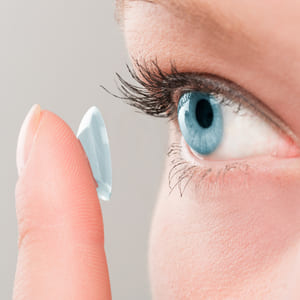

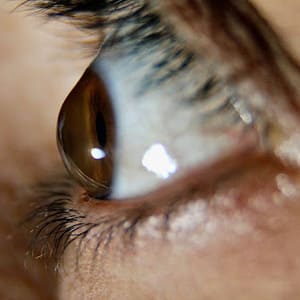
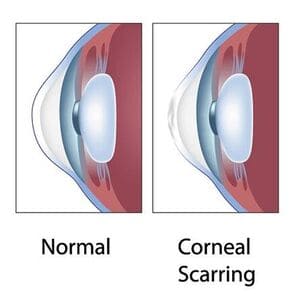
Types of Corneal Transplant Surgeries
There are a variety of types of corneal transplant surgeries that can be performed to restore vision. Penetrating keratoplasty (PK), Descemet’s stripping endothelial keratoplasty (DSEK), Descemet’s membrane endothelial keratoplasty (DMEK), deep anterior lamellar keratoplasty (DALK), and superficial anterior lamellar keratoplasty (SALK) are all common types of surgeries.
PK is the most common type of PK surgery, and it is often used to replace damaged or missing eyesight in people who have lost sight due to diseases such as blindness from glaucoma, age-related macular degeneration, or retinitis pigmentosa. DSEK is also a common type of PK surgery, and it is used to repair damage to the eye caused by diseases like cataracts or diabetic retinopathy. DMEK is used to treat conditions like refractive errors and poor vision due to AMD. DALK is used to treat conditions like dry eye syndrome and ocular hypertension. SALK is primarily used to treat advanced age-related cataracts. Another common type of corneal transplant surgery is an artificial cornea transplant (Keratoprosthesis). This surgery is usually used to replace a defective or damaged artificial cornea in people who have lost their natural eye due to disease or injury.
Cornea Transplant Surgery Cost In Panchkula
The cost of corneal treatment surgery in Panchkula varies between ₹40,000/eye to ₹80,000/eye depending on the procedure. MantraCare is one of the best cornea hospitals in Panchkula, and it offers corneal treatment at the most competitive prices. MantraCare also offers insurance and financing EMI options for corneal treatment in Panchkula to make the procedure more affordable for patients.
| Cornea Treatment Options | Description | Cost (₹) |
|---|---|---|
| Penetrating Keratoplasty (PK) in Panchkula | Full thickness corneal transplant (entire cornea is replaced) | 55,000 |
| Descemet’s Stripping Endothelial Keratoplasty (DSEK/ DSAEK) in Panchkula | Damaged inner corneal layer is removed through a small incision (Donor tissue is thicker & easier to transplant compared to DMEK) | 50000 |
| Descemet’s Membrane Endothelial Keratoplasty (DMEK) in Panchkula | Damaged inner corneal layer is removed through a small incision | 50000 |
| Deep Anterior Lamellar Keratoplasty (DALK) in Panchkula | Partial thickness corneal transplant (used in case of keratoconus or bulging cornea) | 45000 |
| Superficial anterior lamellar keratoplasty (SALK) in Panchkula | Partial thickness corneal transplant wherein the front layer of the cornea is replaced (Stroma and endothelium are unharmed) | 45000 |
| Artificial Cornea Transplant (Keratoprosthesis) in Panchkula | Corneal transplant with artificial cornea (If not eligible for a donor cornea) | 80000 |
Cornea Hospitals in Panchkula
There are several cornea eye hospitals in Panchkula, including MantraCare Panchkula, Eye Clinic Panchkula, Eye Center Panchkula, and Eye Mantra Panchkula. EyeMantra is one of Panchkula’s leading Cornea treatment center, with over 100,000 eyes operated by its doctors. Our hospitals in Panchkula are accessible from the following areas :
- Sector 20
- Sector 30
- Mansa Devi Complex
- Sector 5
- Sector 19
- Sector 24
- Pinjore
- Sector 27
- Sector 2
- Sector 6
- Morni
- Surajpur
- Raipur Rani
- Sector 14
- Sector 25
- Sector 15
- Kalka
Top Corneal Treatment / Keratoplasty Doctors in Panchkula
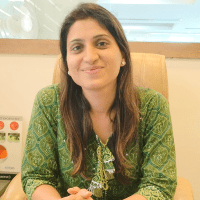
Cataract, Retina, Glaucoma, LASIK

LASIK
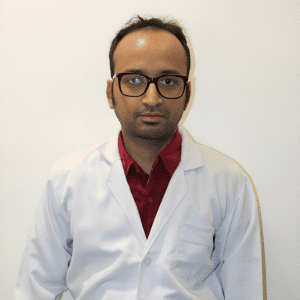
Cataract, Retina, Glaucoma, LASIK
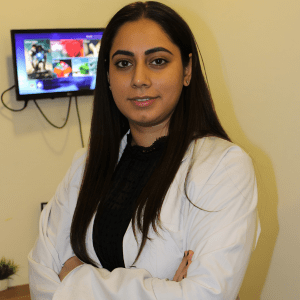
Cataract, Retina, Glaucoma, LASIK
Happy Patients from Panchkula after Corneal Transplant / Keratoplasty

“I have a cornea transplant done in Panchkula and the whole process has been a blessing. The doctors are very professional, supportive and caring. They will go out of their way to make sure I am comfortable. I would recommend this surgery to anyone who needs it.”
– Sharon (Panchkula)